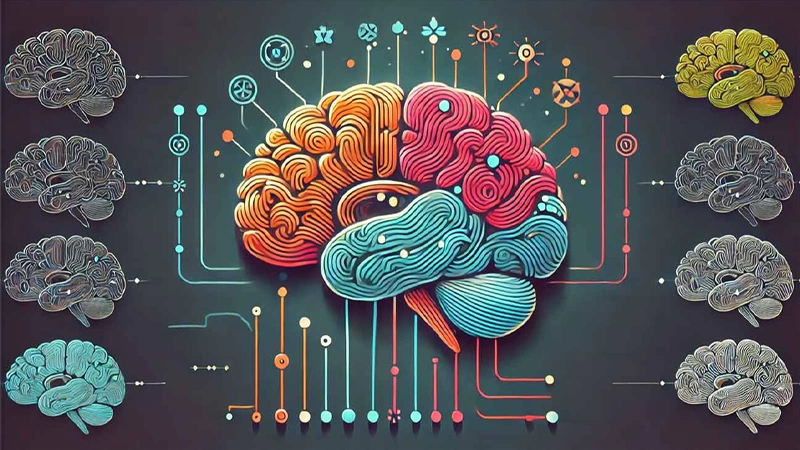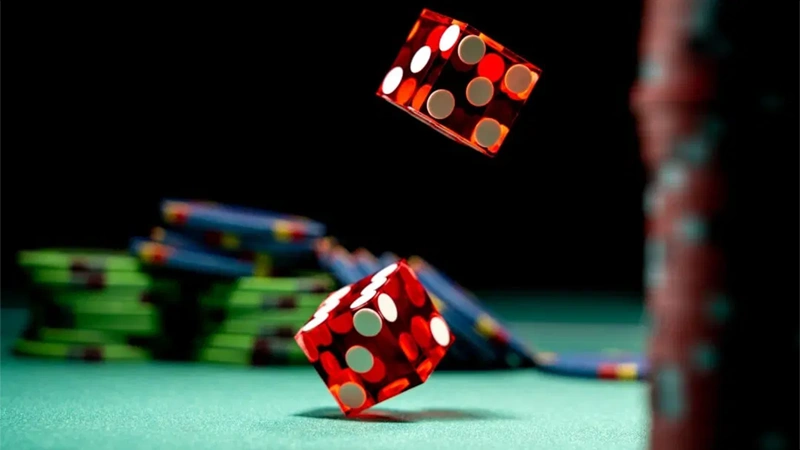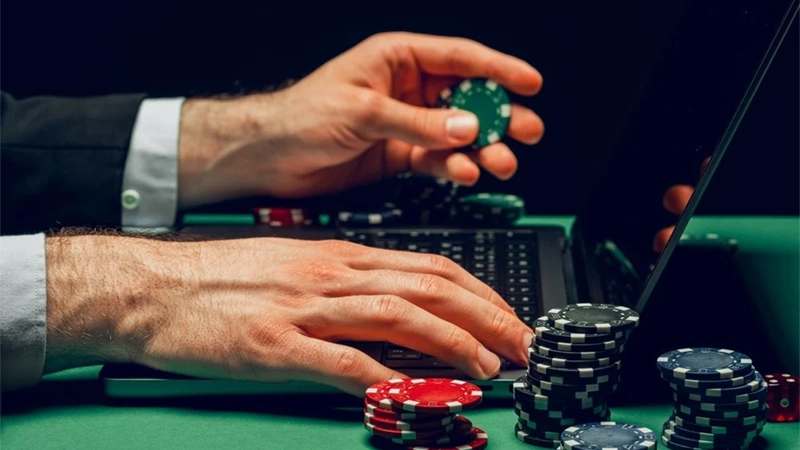The allure of casino games extends far beyond the potential for financial gain. There’s something uniquely captivating about the lights, sounds, and anticipation that draws millions of players worldwide. However, many players fail to recognize a critical truth: they often don’t realize when they’re losing control.
The psychology behind gambling behavior is complex and powerful, driving everything from initial excitement to the dangerous spiral of compulsive play. Understanding these psychological mechanisms is crucial for anyone who wants to enjoy casino gaming responsibly. This article explores how our minds respond to casino environments and why even well-intentioned players can find themselves unable to stop.
The Brain’s Response to Instant Rewards
The Dopamine System and Rewards
Casino games, particularly slot machines, are essentially “dopamine dispensers” designed to trigger our brain’s reward system. When you win, even a small amount, your brain releases dopamine – the same neurotransmitter involved in eating, sex, and other pleasurable activities. This creates a powerful association between gaming and pleasure.

The intermittent reinforcement schedule used in casino games is particularly effective at maintaining this dopamine response. Unlike predictable rewards, the random nature of wins keeps your brain constantly anticipating the next potential payout, maintaining engagement even during losing streaks.
The “Keep Playing” Reflex Despite Losses
One of the most fascinating aspects of casino psychology is how near-misses affect our brains. When you almost win – say, two matching symbols with the third just one position away – your brain responds almost as strongly as if you had actually won. This Psychological effects in gambling creates a false sense of progress and encourages continued play.
This neurological quirk explains why players often feel most motivated to continue immediately after a near-miss. Your brain interprets these close calls as evidence that a win is imminent, even though each spin is completely independent of the previous one.
Psychological Effects That Make You Lose Your Clarity
The Illusion of Control Effect
Many players develop an irrational belief that they can influence game outcomes through their actions. They might think pressing the spin button at exactly the right moment, choosing a “lucky” machine, or following specific patterns will improve their chances. This illusion of control is particularly strong in games where players make choices, even if those choices don’t actually affect the outcome.

In reality, modern casino games use Random Number Generators (RNGs) that make outcomes completely unpredictable and uncontrollable. No amount of skill, timing, or strategy can influence these results, yet the illusion of control keeps players engaged and invested in outcomes they cannot actually affect.
The “Recovery” Effect – The More You Lose, The More You Risk
Perhaps the most dangerous psychological trap is the escalating bet pattern that follows losses. When players fall behind, they often increase their bet sizes in an attempt to quickly recover their losses. This “recovery” mentality can transform small setbacks into major financial disasters.
The psychology behind this behavior is rooted in loss aversion – the fact that losses feel roughly twice as painful as equivalent gains feel pleasurable. This emotional imbalance drives players to take increasingly desperate risks to avoid the pain of accepting their losses, often leading to complete loss of control.
Addictive Game Design – Not by Accident
Sound, Visuals, and Unlimited Playing Time
Modern slot games are carefully engineered psychological experiences. The combination of celebratory sounds, flashing lights, and rapid gameplay creates an immersive environment that encourages extended play. Every element is designed to maintain engagement and prevent natural stopping points.

The absence of clocks, windows, or other time cues in casino environments (both physical and virtual) contributes to time distortion. Players can easily lose track of how long they’ve been playing, leading to sessions that extend far beyond their original intentions. The seamless, endless loop of gameplay prevents the natural breaks that might allow for rational evaluation.
Interfaces That Obscure Win/Loss Tracking
Casino game interfaces are deliberately designed to make it difficult to track overall profits and losses. Instead of showing clear financial summaries, games focus on chips, credits, or points that abstract away the real money being wagered. Players see they “still have chips” or “can still play” rather than confronting the reality of their mounting losses.
This design choice exploits our cognitive tendency to treat abstract representations differently from concrete money. It’s much easier to bet 100 credits than to bet $100, even when they represent the same value. This psychological distance makes it easier to continue playing beyond reasonable limits.
When Emotions Lead Instead of Logic
Fatigue Leads to Poor Decision Making
Extended gaming sessions inevitably lead to mental fatigue, which significantly impairs decision-making abilities. As cognitive resources become depleted, players rely increasingly on emotional impulses rather than rational analysis. This leads to larger bets, poor timing, and abandonment of any systematic approach to gaming.

Research shows that decision-making quality deteriorates significantly after extended periods of concentrated activity. In casino environments, this fatigue-induced impairment often manifests as increasingly reckless behavior just when caution is most needed.
The State of “Forgetting Time and Money”
Psychologists recognize a phenomenon in gambling called dissociation – a state where players become so absorbed in the activity that they lose connection with their normal awareness of time, money, and consequences. This trance-like state is similar to the “flow” experience described in other activities, but in gambling contexts, it can be extremely dangerous.
Online casino environments can intensify this dissociative state. Without the physical cues and social interactions present in traditional casinos, players can become even more absorbed in the game, losing touch with reality and their predetermined limits.
How to Maintain Control When Playing at Casino 91 Club
Understanding these psychological mechanisms is the first step toward maintaining control over your gaming experience. The human brain’s response to gambling stimuli is powerful and often unconscious, but awareness of these processes allows you to maintain an active, conscious approach to your gaming decisions.
The most successful casino players aren’t necessarily the luckiest – they’re the ones who understand their own psychological vulnerabilities and implement systems to protect against them. This includes setting strict time and money limits before playing, taking regular breaks, and maintaining awareness of their emotional state throughout their gaming sessions.
Casino 91 Club provides comprehensive tools to support responsible gaming, including session time limits, betting limits, clear RTP displays, and resources for players who want to maintain safe gaming habits. Our platform is designed to enhance your entertainment while providing the safeguards necessary for responsible play.
👉 “Self-control is the most important skill in gaming – and Casino 91 Club is always here to help you develop it.”

